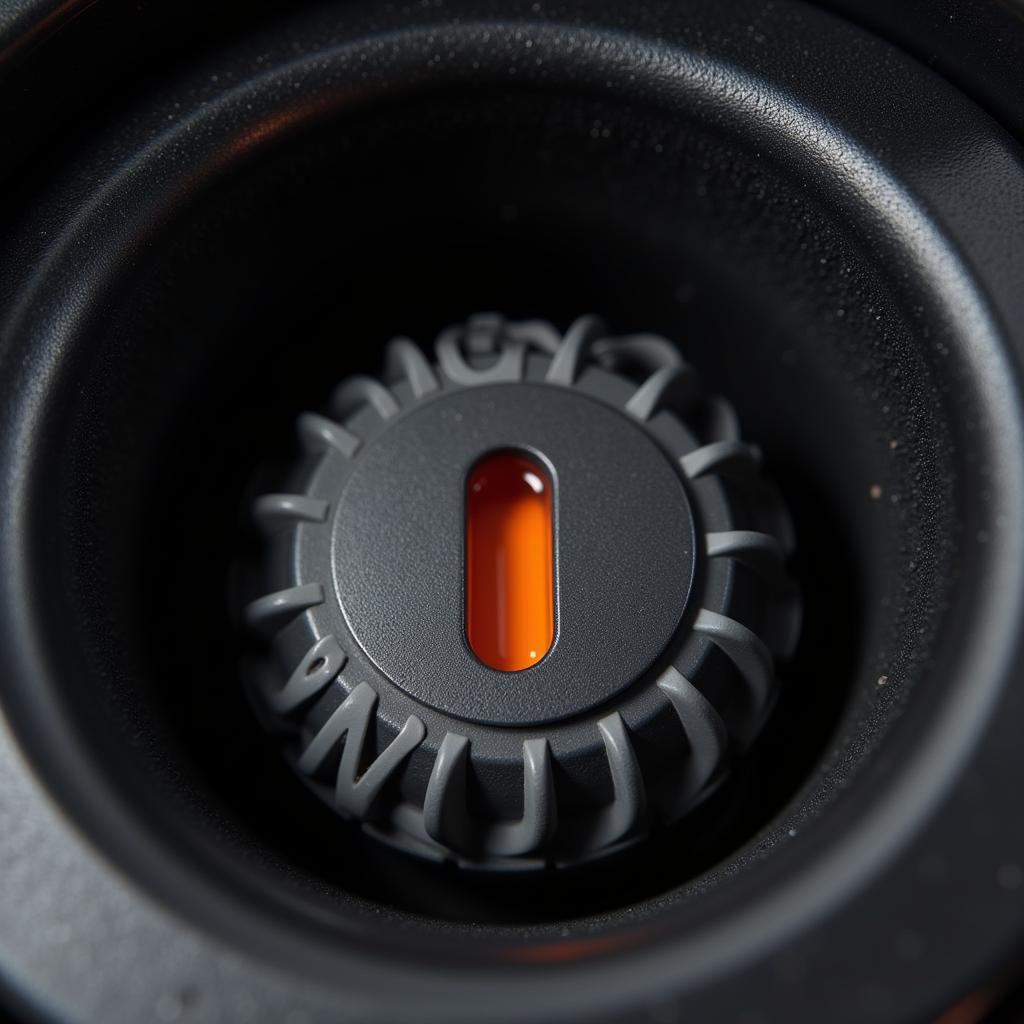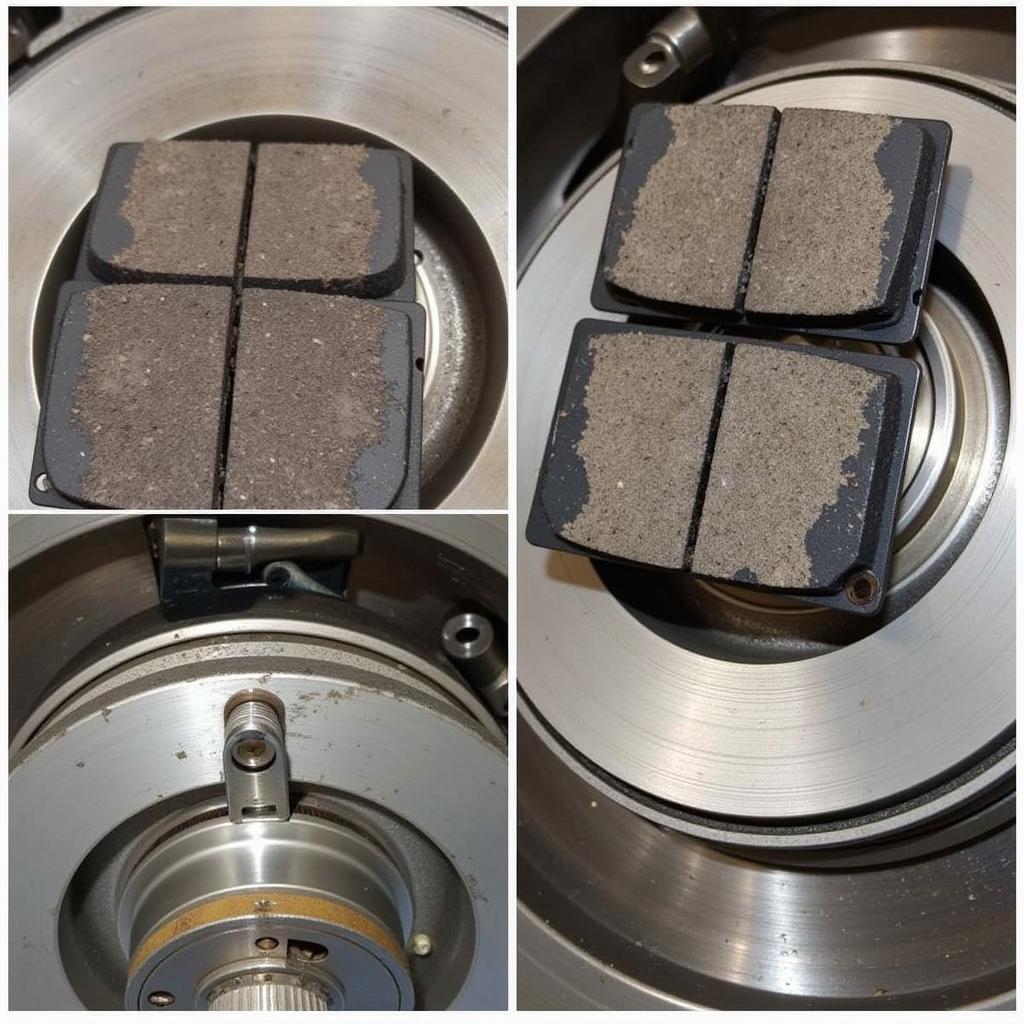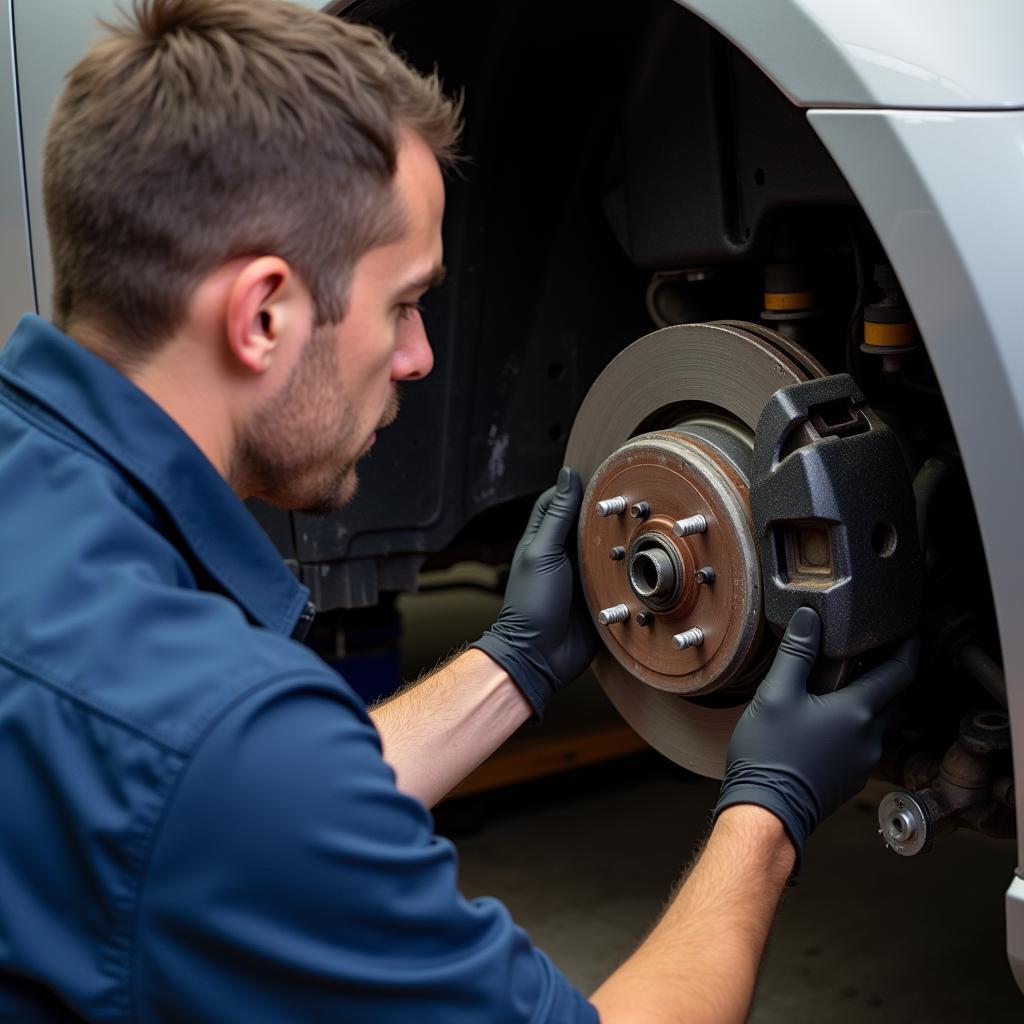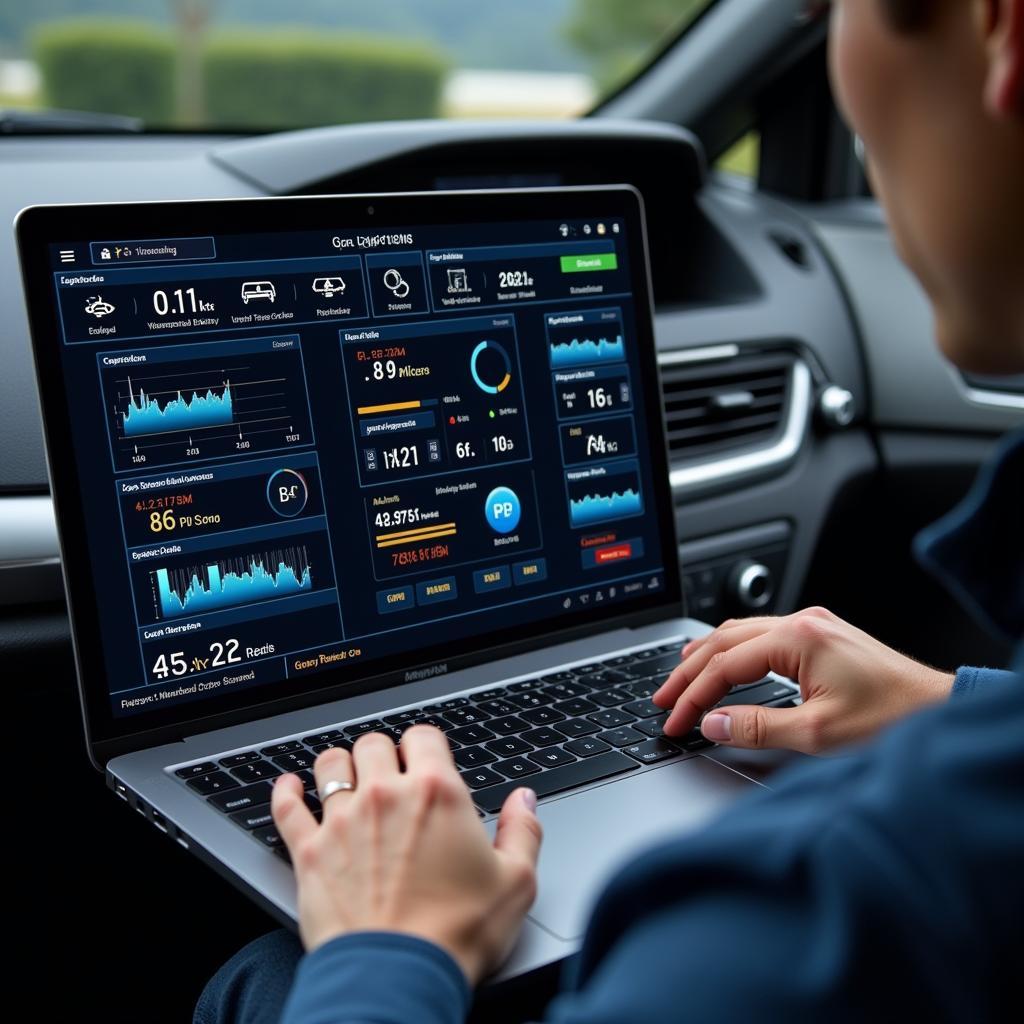The brake warning light on your 2012 Nissan Altima is a crucial safety feature that shouldn’t be ignored. When illuminated, it signals a potential issue within your braking system that requires immediate attention. This article delves into the common causes behind a 2012 Nissan Altima brake warning light and provides potential solutions to help you get back on the road safely.
Understanding Your Brake Warning Light
The brake warning light, often symbolized by an exclamation mark within a circle or the word “BRAKE,” serves as your car’s way of communicating a problem with the braking system. It’s essential to understand that this light doesn’t pinpoint a specific issue but rather alerts you to the need for further inspection.
Common Causes of a Lit Brake Warning Light
Several factors can trigger the brake warning light on your 2012 Nissan Altima. Here are some of the most common culprits:
1. Low Brake Fluid Level
 Low Brake Fluid Reservoir
Low Brake Fluid Reservoir
One of the most frequent reasons for the brake warning light is a low brake fluid level. Brake fluid is the lifeblood of your car’s braking system, transmitting the force from your foot on the brake pedal to the wheels, ultimately stopping the vehicle. A leak in the brake lines or a worn-out brake caliper can cause the fluid level to drop.
2. Worn Brake Pads
 Worn Brake Pads Comparison
Worn Brake Pads Comparison
Brake pads are designed to wear down over time. They contain a metal indicator that makes contact with the brake rotor when the pad material becomes too thin. This contact creates a high-pitched squealing sound, often the first sign of worn brake pads. If ignored, the brake warning light may illuminate as the metal-on-metal contact becomes more pronounced.
3. Faulty Brake Light Switch
While not directly related to your braking system’s hydraulics, a malfunctioning brake light switch can also trigger the brake warning light. This switch is responsible for activating your brake lights when you press the brake pedal. If it fails, your brake lights might not function correctly, and the car’s computer might illuminate the warning light as a precaution.
4. ABS Issue
Modern vehicles like your 2012 Nissan Altima are equipped with an Anti-lock Braking System (ABS). This system prevents wheel lockup during hard braking, improving vehicle control. A problem within the ABS module, wheel speed sensors, or wiring can trigger the brake warning light.
“It’s always best to err on the side of caution when it comes to your brakes,” advises John Smith, a certified automotive technician with over 20 years of experience. “If your brake warning light comes on, don’t delay getting your car inspected by a qualified mechanic.”
What to Do When Your Brake Warning Light Comes On
Ignoring a lit brake warning light can have serious consequences, potentially leading to brake failure and an increased risk of accidents. Here’s a step-by-step guide on what to do:
-
Safely Pull Over: As soon as it’s safe, pull your car over to the side of the road or a safe location.
-
Check Your Brake Fluid: Carefully open the hood and locate the brake fluid reservoir. Check the fluid level – if it’s low, adding brake fluid might temporarily address the issue, but it’s crucial to get the system inspected for leaks.
-
Listen for Unusual Noises: Pay attention to any unusual noises coming from your brakes, such as grinding, squealing, or clicking. These sounds can provide valuable clues about the underlying problem.
-
Avoid Driving: If possible, avoid driving your car until a mechanic has inspected the braking system.
-
Seek Professional Help: Contact a qualified mechanic specializing in Nissan vehicles to diagnose and repair the issue.
Preventing Brake Warning Light Issues
 Car Brake Inspection
Car Brake Inspection
Preventing brake problems is always preferable to dealing with them after they arise. Here are some preventative measures:
- Regular Brake Inspections: Schedule routine brake inspections with a qualified mechanic, ideally every 12,000 miles or as recommended in your Nissan Altima owner’s manual.
- Timely Brake Pad Replacement: Don’t wait for your brake pads to wear down completely. Replace them at the first sign of wear or noise.
- Quality Brake Fluid: Use high-quality brake fluid and follow the manufacturer’s recommendations for replacement intervals.
Conclusion
A glowing brake warning light in your 2012 Nissan Altima is a serious matter that requires immediate attention. While a simple issue like low brake fluid might be the cause, it’s crucial not to ignore this warning sign. Promptly addressing brake issues ensures your safety and prevents potentially costly repairs down the line.

